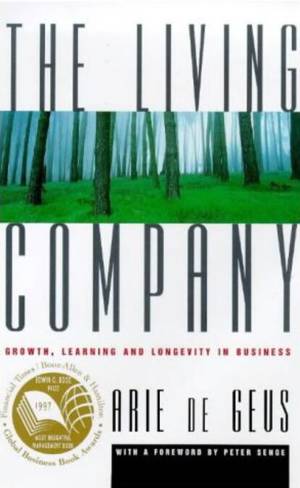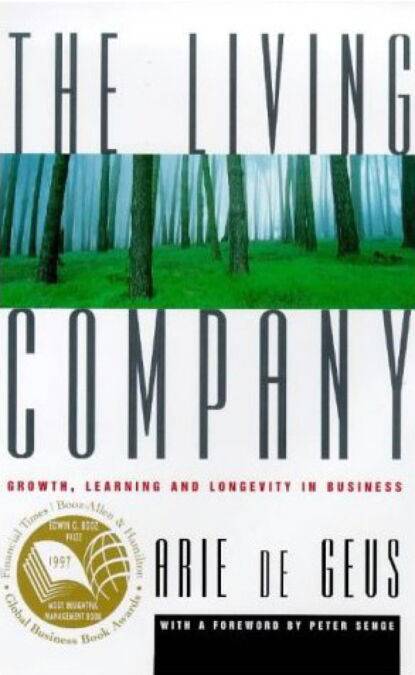
Bedankt voor het vertrouwen het afgelopen jaar! Om jou te bedanken bieden we GRATIS verzending (in België) aan op alles gedurende de hele maand januari.
- Afhalen na 1 uur in een winkel met voorraad
- In januari gratis thuislevering in België
- Ruim aanbod met 7 miljoen producten
Bedankt voor het vertrouwen het afgelopen jaar! Om jou te bedanken bieden we GRATIS verzending (in België) aan op alles gedurende de hele maand januari.
- Afhalen na 1 uur in een winkel met voorraad
- In januari gratis thuislevering in België
- Ruim aanbod met 7 miljoen producten
Zoeken
€ 3,99
+ 3 punten
Uitvoering
Omschrijving
In The Living Company, the man who introduced the revolutionary concept of the learning organization has turned his attention to identifying the critical characteristics of organizational longevity. Arie de Geus reveals the keys to managing for a long and prosperous organizational life. He draws a sharp distinction between "living companies, " the purpose of which is to fulfill their potential and perpetuate themselves as ongoing communities, and "economic companies, " which are in business solely to produc wealth for a small group of individuals. He shows clearly that living companies manage for survival; economic companies manage for profit. With nearly 40 years of experience at Royal Dutch/Shell, where he was involved firsthand with implementing the renowned scenario planning technique, de Geus describes how he came to explore and understand the special qualities of living companies. Among a wide array of important factors, long-lived companies have four essential traits in common. At a minimum, these firms are sensitive to their environment in order to learn and adapt; cohesive, with a strong sense of identity; tolerant of unconventional thinking and experimentation; and conservative in financial policy to retain the resources that allow for flexibility.
Specificaties
Betrokkenen
- Auteur(s):
- Uitgeverij:
Inhoud
- Taal:
- Engels
Eigenschappen
- Productcode (EAN):
- 9781857884234
- Verschijningsdatum:
- 11/01/2011
- Uitvoering:
- E-book
- Beveiligd met:
- Adobe DRM
- Formaat:
- ePub

Alleen bij Standaard Boekhandel
+ 3 punten op je klantenkaart van Standaard Boekhandel
Beoordelingen
We publiceren alleen reviews die voldoen aan de voorwaarden voor reviews. Bekijk onze voorwaarden voor reviews.









